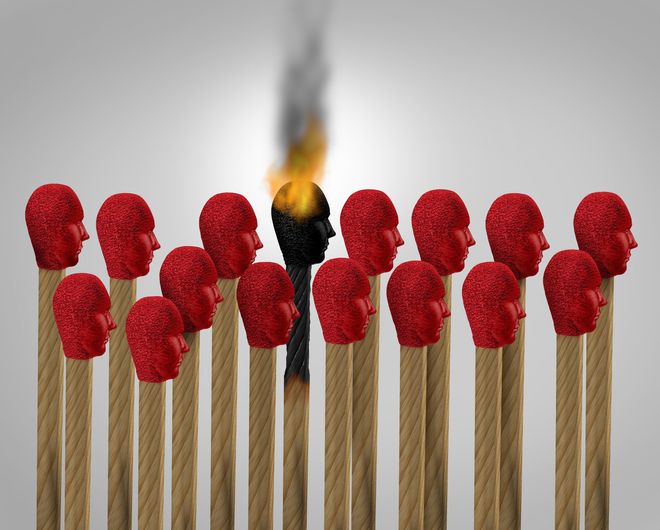Our civilisation has reached a point where it makes just as many people ill mentally as it makes well physically. However, being aware of that is already part of the solution. Let’s see how we can escape from the trap of a burnout or midlife crisis!
My grandparents’ generation had a strange affection for gardening. An activity they didn’t need to do anymore, yet they did it. I often wonder whether they were already fighting this modern epidemic by wielding a hoe to relieve stress. Because, as far as I can recall, sources of stress were emerging everywhere, but especially in ever-more-demanding jobs. As early as the 1970s, it was declared that civilisation diseases actually exist, and they mostly take a toll on people’s mental health. As a young adult, I took it for granted that life was like that, and there was no way to escape it.
Who isn’t tired, after all, or fed up with their life as it is now? If you are around 40-50, you may find both things hit you all at once. Now I don’t know about you, but I’d like to be prepared if that’s the case. So I did a little research on the red flags for mental health.
It turns out burnout is somewhat easier to identify, since in 2019 WHO officially announced it was an “occupational phenomenon” caused by chronic workplace stress and manifesting itself as exhaustion, cynicism about the job, and decreasing performance as a result.
The midlife crisis, a condition we have known about since the 1960s, unfortunately doesn’t have such clearly defined diagnostic criteria. There is a running joke about grey-haired men chasing young girls around in a red Porsche, but the reality is more complicated. Some people completely close up in denial. Others try to face their strange new thoughts only to find doubt, insecurity, apathy, and a confusing picture of the future.
Yet in order to begin to heal, we do have to face those thoughts — and not look for a magic pill to make it all go away. Any long-term solution will involve the trinity of self-care: admit your problem, ask for help, and stick to your healing plan. Such a strategy, usually consisting of prioritising your best interests, and also saying no more often, getting some exercise, and being more mindful, can also be used as prevention. Besides general advice, both conditions have their specific healing tools. For burnout, it can be that extra rest so you have a clear mind to make the right decisions for your mental health. For navigating a midlife crisis, it can be a change of perspective and setting new personal and professional goals.
We can’t turn the clock back, but we can be aware of these mental traps, dig deeper, and find new perspectives. We can be the crisis managers of our own lives and repair the damage civilisation causes – at least the damage we are aware of so far.
Written by Anikó Jóri-Molnár


